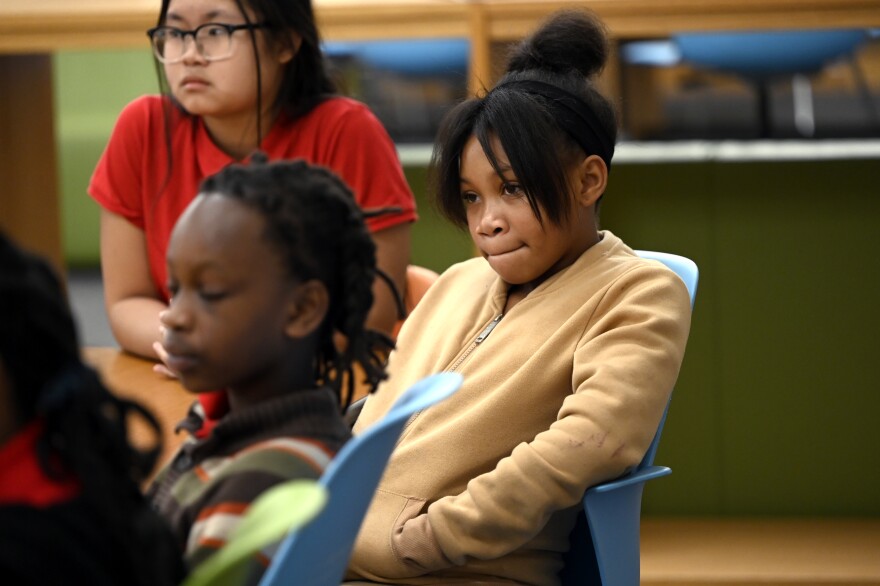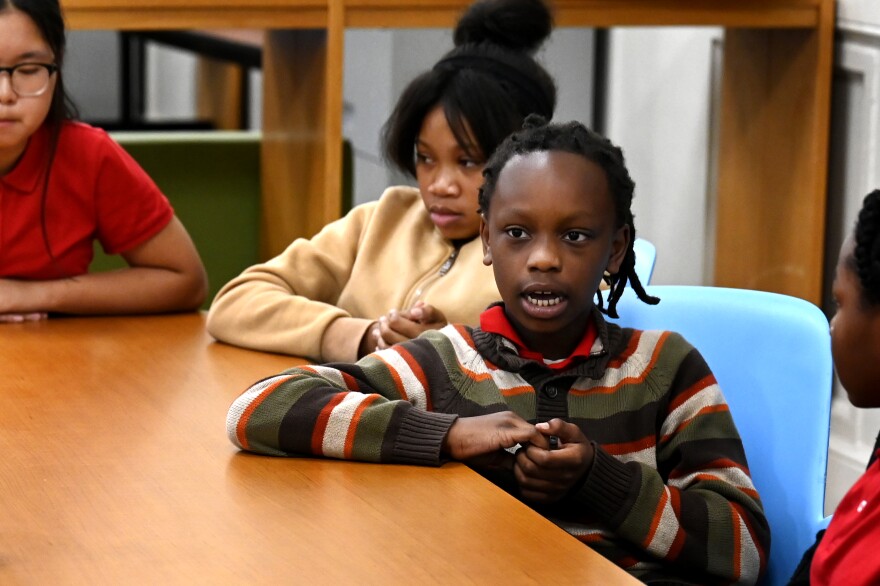U.S. Sen. Chris Murphy held a roundtable Friday with kids at Alfred E. Burr Middle School in Hartford, inviting them to ask questions. The kids asked if he drove around in a limousine. And would he give them a job in government?
But there was more.
“What if that was me one day? What if I got shot?” asked Khyreem Williams. “What if my parents got shot? What if my friend got shot? What if my cousin got shot? And that’s what sometimes makes kids disappointed, and like, upset and mad. And you know, sometimes, you could just wish that things were a bit better.”
Other kids talked about drugs in their communities and fear of going to play in the park.

Murphy was at the student roundtable to highlight the new $11 billion Safer Communities Act. Funding will help improve neighborhood safety, Murphy said. It’ll also help fund school-based mental health efforts. The act covers gun safety, access to pediatric mental care, and recruiting counselors and mental health professionals at schools. Funding is expected in Connecticut this school year, he said.
Much of the money will go straight to schools to hire more mental health professionals and social workers.
“It’s heartbreaking to listen to these kids talk about not feeling safe, not being able to walk to school,” Murphy said.

Funding in the Safer Communities Act includes $60 million in funding to train pediatric primary care providers in mental health, $80 million to help pediatricians access mental health specialists’ expertise and $28 million to support trauma care in school settings. Additional funding is designed to help states implement, enhance and expand school-based mental health programs.
The Connecticut Department of Health and the Department of Children and Families were early recipients – they were awarded $300,000 to expand mental health care for children.





